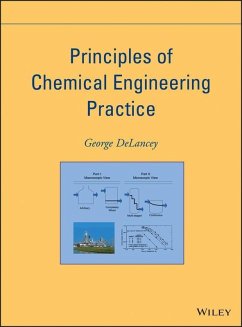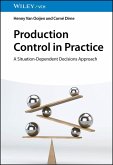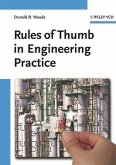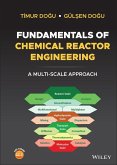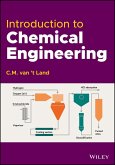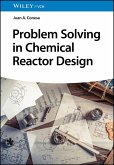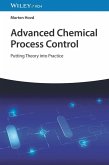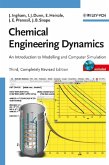Enables chemical engineering students to bridge theory and practice
Integrating scientific principles with practical engineering experience, this text enables readers to master the fundamentals of chemical processing and apply their knowledge of such topics as material and energy balances, transport phenomena, reactor design, and separations across a broad range of chemical industries. The author skillfully guides readers step by step through the execution of both chemical process analysis and equipment design.
Principles of Chemical Engineering Practice is divided into two sections: the Macroscopic View and the Microscopic View. The Macroscopic View examines equipment design and behavior from the vantage point of inlet and outlet conditions. The Microscopic View is focused on the equipment interior resulting from conditions prevailing at the equipment boundaries. As readers progress through the text, they'll learn to master such chemical engineering operations and equipment as:
Throughout the book, the author sets forth examples that refer to a detailed simulation of a process for the manufacture of acrylic acid that provides a unifying thread for equipment sizing in context. The manufacture of hexyl glucoside provides a thread for process design and synthesis.
Presenting basic thermodynamics, Principles of Chemical Engineering Practice enables students in chemical engineering and related disciplines to master and apply the fundamentals and to proceed to more advanced studies in chemical engineering.
Integrating scientific principles with practical engineering experience, this text enables readers to master the fundamentals of chemical processing and apply their knowledge of such topics as material and energy balances, transport phenomena, reactor design, and separations across a broad range of chemical industries. The author skillfully guides readers step by step through the execution of both chemical process analysis and equipment design.
Principles of Chemical Engineering Practice is divided into two sections: the Macroscopic View and the Microscopic View. The Macroscopic View examines equipment design and behavior from the vantage point of inlet and outlet conditions. The Microscopic View is focused on the equipment interior resulting from conditions prevailing at the equipment boundaries. As readers progress through the text, they'll learn to master such chemical engineering operations and equipment as:
- Separators to divide a mixture into parts with desirable concentrations
- Reactors to produce chemicals with needed properties
- Pressure changers to create favorable equilibrium and rate conditions
- Temperature changers and heat exchangers to regulate and change the temperature of process streams
Throughout the book, the author sets forth examples that refer to a detailed simulation of a process for the manufacture of acrylic acid that provides a unifying thread for equipment sizing in context. The manufacture of hexyl glucoside provides a thread for process design and synthesis.
Presenting basic thermodynamics, Principles of Chemical Engineering Practice enables students in chemical engineering and related disciplines to master and apply the fundamentals and to proceed to more advanced studies in chemical engineering.
Dieser Download kann aus rechtlichen Gründen nur mit Rechnungsadresse in D ausgeliefert werden.

